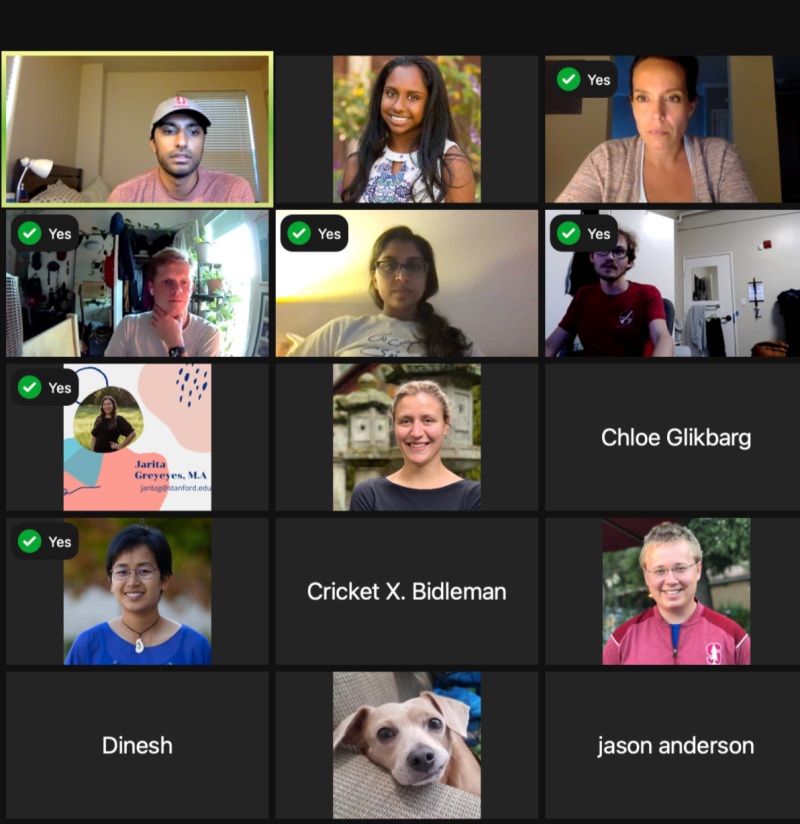Representatives on the Graduate Student Council (GSC) criticized the University’s lack of a standardized contingency plan for those students who test positive and those who are exposed to COVID-19.
These concerns were particularly pronounced due to the recent arrival of both graduate and undergraduate students for the fall quarter.
GSC councilor and fourth-year developmental and psychological sciences Ph.D. student Emily Schell said she was concerned about how contact tracing would occur, especially because students may not know the names of the people they sat next to during the first few days of class.
One of the students in the class Schell teaches recently tested positive for COVID-19. After being notified by the Registrar’s Office, Schell said she followed up to see what was being done about contact tracing and was told that people were “working on it.” She was provided with no other details.
“My question is how we can ask the university to be more upfront during situations like this,” Schell said.
Harris added that students who test positive can request academic support through their Academic Advising Director and should correspond with their teachers if they feel well enough to complete schoolwork. “Since course formats and expectations differ, instructors may use different resources and strategies to support a student’s progress,” Harris wrote.
Councilor Jamie Fine, a fifth-year modern thought and literature Ph.D. student, said she was concerned about the lack of a standardized policy if an outbreak were to occur. Other members of the council said they were worried about the slow turnaround of COVID-19 test results and how this could lead students to unknowingly spreading the virus to one another.
“This warrants our attention before it becomes a major crisis,” Fine said. “I would rather put in the efforts towards prevention now, and if nothing bad happens then that’s a good thing.”
Schell and others also criticized the policies that prevented students from completing classes remotely. Some councilors said their classes, particularly in engineering departments, offer a remote option for students and instructors. However, the students and professors in some other departments were not offered the same flexibility, councilors said. Schell added that sometimes professors and teaching assistants have the choice of deciding to teach remotely, while students do not.
“As part of the teaching staff, I have the luxury to come to class on Zoom. That’s a choice I can make,” Schell said. “My students don’t have an option for this.”
After hearing of the positive case, Schell said she thought of trying to get KN95 masks for all her students to help them be more protected.
First-year sociology Ph.D. student and councilor Cat Sanchez ’19 echoed Schell’s concerns and said “not all students are in the same place in terms of [COVID-19] risk either.”
The councilors said it is important to ensure students who are exposed and in quarantine have access to recordings and other remote-learning tools to stay on top of their schoolwork. They also said they acknowledged that students have different living situations and personal or familial obligations as a result of the pandemic.
Sanchez suggested the University’s hesitancy toward remote learning this year could be due to difficulties they might face with accreditation, which is a federal matter. Sanchez said last year, the government suspended in-person learning requirements due to the pandemic, but this year those changes have been reversed.
First-year aeronautics and astronautics Ph.D. student Emi Soroka created a petition to guarantee students remote learning options for classes and office hours. The petition also asks students who have been diagnosed with COVID-19 be able to change their grading basis even after the deadline.
Council co-chairs fifth-year communication Ph.D. student Sanna Ali ’12 and KC Shah J.D. ’22 supported drafting an open letter to Jim Jacobs, the executive director of the Vaden Health Center and the associate vice provost of student affairs. They also said they were open to collaborating with the Undergraduate Senate, since the University’s COVID-19 policies affect undergraduates as well.
